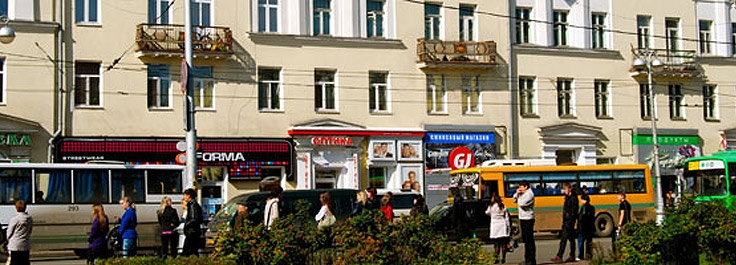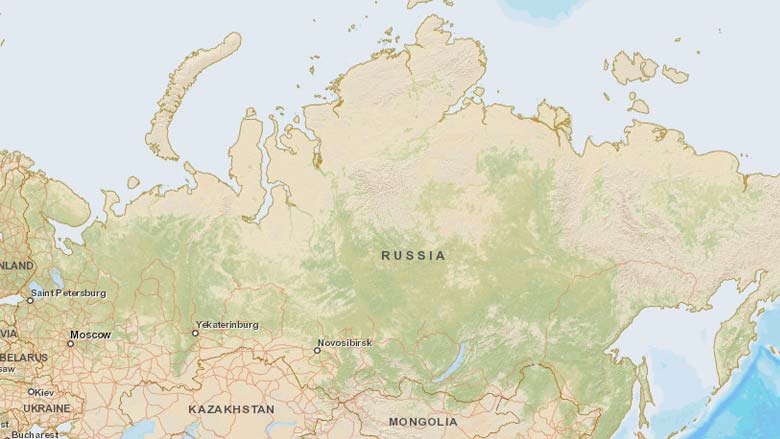Challenge
Russia is an upper middle-income economy that strives to move to a high-income status. The country has a favorable short-term fiscal outlook due to a sizable budget surplus.
In the short term, Russia is still vulnerable to over-dependence on oil and gas and to a prolonged recession in Europe that could trigger a global slowdown.
In the medium and longer term, the country will depend on the success of establishing a new growth model that addresses two critical challenges: i) increasing competitiveness and fostering innovation to diversify the economy and ii) coping with demographic change pertaining to Russia's declining and aging population, which is leading to a shrinking workforce. These call for a policy of modernization across many areas: business environment, innovation, public administration, and social services.
Regional development continues to be a challenge. Across the 83 regions, there are significant contrasts in socio-economic conditions. Russia's long-term complex challenges call for coordinated actions by all levels of the Government to become an advanced, high-income economy. Russia's "Strategy - 2020" clearly recognizes these critical challenges.
Approach
The WBG's unique, three-dimensional approach engages in Russia on three levels: nationally, regionally, and globally.
At the national level, the Bank aims to maximize its development impact mainly by reaching out to the poorer regions of Russia. As the largest country in the world and a regional growth and migration pole in Europe and Central Asia (ECA), Russia has an important impact on regional and global challenges.
At the ECA regional level, the WBG supports "Russia as a Donor Initiative" (RDI) through technical assistance for capacity strengthening. The Government will likely concentrate its development aid on poorer countries in ECA with which it still has strong economic and historical links.
At the global level, the Bank provides advisory services and knowledge to support Russia's efforts in providing global public goods. It assists Russia to enhance its voice in international forums such as the G8, G20, and the Asia-Pacific Economic Cooperation (APEC), and supports the country's integration into the World Trade Organization (WTO).
To stay relevant in an advanced middle-income country like Russia, the Bank must innovate constantly. The CPS positions the WBG as a partner of choice for Russia based on its global knowledge leadership in development. The partnership with Russia involves financial services and diverse knowledge products, some of them on a reimbursable basis.


